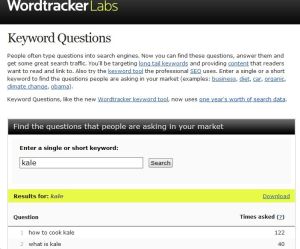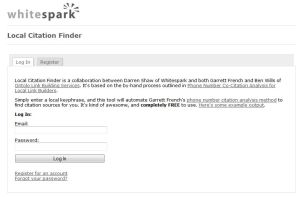
What questions are your customers Googling? Try this free marketing tool to find out!
Figuring out what people are typing into the Google search bar, what content drives people to your website, how people use your keywords is all a part of the often mysterious world of Search Engine Marketing (SEM) and Search Engine Optimization (SEO). It might sound complicated, but online technology is making things much easier, and much of it is FREE.
The free marketing tool I want to share with you today is about questions. What questions do you think your customers are asking? What do they want to know? You can list off a whole bunch I’m sure, but do you know which questions people are asking search engines using your keywords?
Sure, you can make guesses, but how about a tool that will tell you? For free?
Wordtracker labs is offering you just that with their free application that lets you see common online queries. It’s as simple as typing in a keyword. Wordtracker will then spit out a list of the questions that have been asked online with that word over the last year.
I played around with it by typing in the word kale (I know, kinda random, but I had just picked some out of my veggie garden, and that’s what came to me). “How to cook kale” was right at the top, which was no surprise. But farther down the list, “how to cook fresh kale” caught my eye. While it is much less popular, it could be a good question to target if you know that there is no way you would ever rank for the 1st question due to competition.
While I can’t vouch for 100% accuracy (check out a review here that brings up some valid reservations about the service), I can promise that this will give you great insight. You might find a question that isn’t super common, but could help to drive very qualified traffic to your site if you create content to draw it in. It might give you an idea for your next blog post. It can open your eyes to an area of concern or interest your customers might have that you never even thought of.
Marketing is all about learning everything you can about your customers (current and potential) and then reciprocating by delivering what they want, need, think about, fret over, show interest in, want to learn more about …
So I say bring on any tool that will help you do just that. And if it’s free, then any small business, no matter how tight the budget, can take full advantage.









